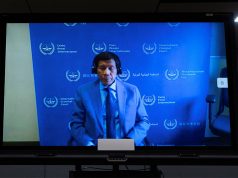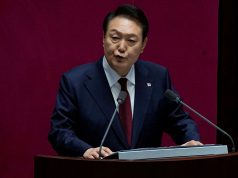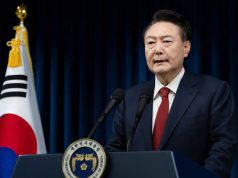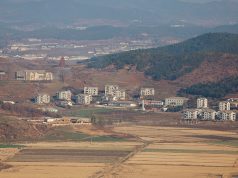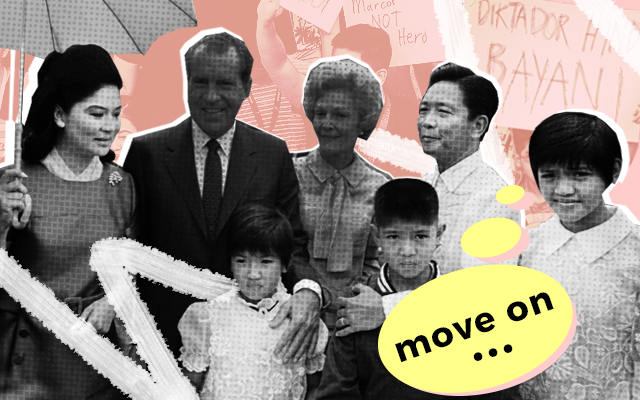
Citing atrocities under the Martial Law dictatorship, some millennials slammed Ilocos Norte Governor Imee Marcos’ comment that young adults have moved on from the past.
As the nation commemorated on August 21 the assassination of Senator Ninoy Aquino Jr., the unwavering critic of her father, Imee said at a press conference:
“The millennials have moved on, and I think people at my age should also move on as well.”
“The conflict between the Marcoses and Aquinos happened a long time ago. We don’t need to keep hating people for a very long time. It’s not our way. We just need to go forward.”
The statements of late dictator Ferdinand’s eldest child were met with ire by some millennials on social media.
One way for us, millennials to show Imee Marcos that we have not moved on is to REGISTER AS VOTERS and make sure that she and her friends don't get a seat in the Senate!
— Miguel Lizada (@mlizada) August 23, 2018
Dear Imee Marcos,
Wag mo sabihing madali, kasi di nga ako maka-move on dun sa ninakaw kong Yakult sa office fridge.
From a conscientious millennial.
— Sigmund (@iamsigmund05) August 23, 2018
Binubuo pa lang ako ng magulang ko may utang na ako. Paano ako nagmo-move on Imee Marcos?
— Candid Faye (@candidfaye) August 23, 2018
To prove that millennials haven’t moved on, one user quoted Imee and shared pictures of young people who were present during the protest of Ferdinand Marcos’ surprise burial at the Libingan ng mga Bayani.
"The millennials have moved on."
Millennials, when Marcos was buried at LNMB: pic.twitter.com/3b3stkx2N6
— Aica Dioquino (@AicaDioquino) August 22, 2018
Dark days
There are several reasons why the country’s youth should not forget historical events that occurred right before and around the time they were born.
Tanong ni Imee Marcos, why dont you move on?
Pilipino: kasi naghihintay pa po kami ng hustisya sa pangungulimbat sa kaban ng bayan at pagyurak sa mga karapatang pantao.
— florin hilbay (@fthilbay) August 22, 2018
JC Punongbayan, an economics doctoral candidate at the University of the Philippines, explained in a Twitter thread Marcoses’ corruption and plunder from an economic perspective.
He wrote, “First, (Imee Marcos’) father’s rule culminated in the country’s deepest postwar recession and more than two ‘lost decades of development.'”
Data indicates that the country’s GDP per capita or income per person significantly declined after 1982 or during Marcos’ later years. It only rose in 2003.
Filipinos were also supposed to have a higher income than today were it not for debts that have accumulated throughout Marcos’ two-decade term.
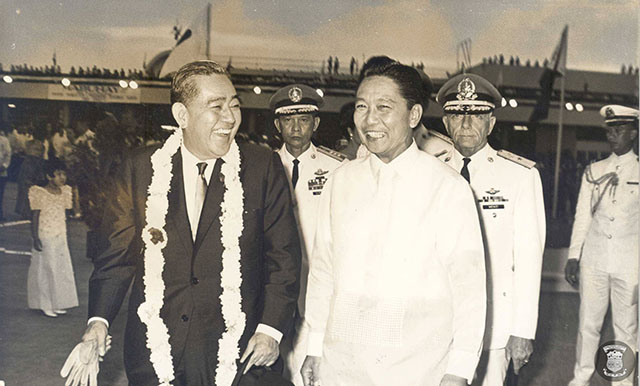
In addition to a dire economic situation, the era was marked by human rights violations perpetrated by the ruthless policies under Martial Law. Those who opposed the government were illegally detained, tortured and oftentimes killed.
Victims who survived the ordeal testified on torture and imprisonment they suffered. There was also a blatant disregard of fundamental civil liberties.
#NeverAgain
While millennials did not live during the Martial Law period, they are very much active in condemning the dark days of the modern Philippine history.
In the 45th Martial Law anniversary last year, they participated in various street demonstrations.
Driving rain failed to dampen #FightTyranny millennials from #LunetaRally on 45th martial law anniversary protest pic.twitter.com/l0WVwouk7f
— GABRIELA (@gabrielaphils) September 21, 2017
IN PHOTOS: Citizens gathered for a mobilization at the CHR to commemorate the 45th anniversary of Martial Law https://t.co/FQYTpPo3Aj pic.twitter.com/FabsWf17BZ
— The GUIDON (@TheGUIDON) September 21, 2017
The hashtag “#NeverAgain” has been a cry against instances of historical revisionism and a way for millennials to remember the dark period tainted with abuse and oppression.
Three days till the martial law anniversary.#NeverAgain
70,000 people imprisoned
34,000 tortured
3,240 killed#NeverAgain— Miguel Carlos ? (@migz93) September 18, 2017
#MARTIAL LAW #NEVER FORGET ! #NEVER AGAIN!
— jodel (@pisiking) September 21, 2016
To help millennials be more aware about the period, the Campaign Against the Return of the Marcoses to the Malacañang shared a video of Filipinos recounting their own experiences during the regime.
It was released two years ago, with a link to a petition for the Department of Education to “rewrite Philippine history books to include the full story of the Martial Law era.”
In the video, some surviving Martial Law victims shared their harrowing experiences during the militarized period. They were violently hit, electrified, verbally abused and subjected to extreme methods of torture by state actors.
The video has since been viewed over 3 million times as of this writing. — Artwork by Uela Altar-Badayos




